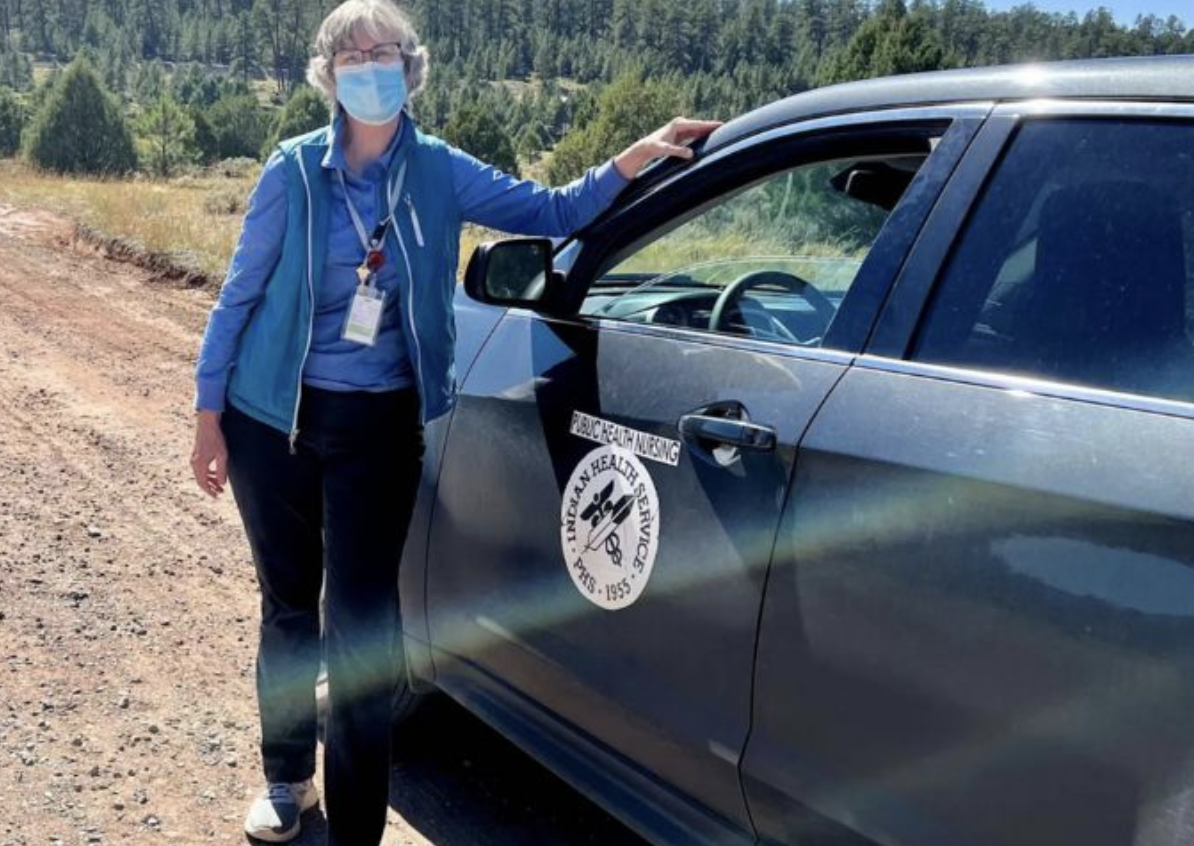
- Details
- By Native News Online Staff
Navajo Nation President Buu Nygren and Vice President Richelle Montoya on Friday proclaimed June 27th as “Navajo Nation Syphilis Aware: Protect Yourself, Protect Navajo” Day to address the alarming rise in syphilis cases across the Navajo Nation.
Syphilis is a sexually transmitted infection caused by the bacterium treponema pallidum. It progresses through multiple stages; primary, secondary, latent and tertiary.
Each stage of syphilis poses severe health risks. Congenital syphilis, transmitted from pregnant women to their babies, has seen a sharp increase, leading to birth defects, miscarriages and infant deaths.
According to the Centers for Disease Control and Prevention, in New Mexico and Arizona between 2015 and 2022, the Navajo Nation saw a 2,114% increase in syphilis cases.
“It can be tough to talk about these things,” President Nygren said. “Sometimes, the most uncomfortable things are the most important. We need to spread awareness about this issue because this impacts our Nation.”
The Navajo Nation’s campaign, “Syphilis Aware: Protect Yourself, Protect Navajo,” is designed to raise awareness and promote proactive measures across the Navajo Nation, the largest Indian reservation in the United States.
“Take care of yourself mentally, physically and emotionally,” said Vice President Montoya. “It breaks my heart to know that syphilis can affect our unborn babies.”
Coupled with traditional Navajo values such as adil’idli, or self-respect, and adahodilzin, or respectand reverence, the campaign encourages education, regular testing and open communication to prevent the spread of syphilis.
The proclamation states that Navajo teachings emphasize improving one’s health through education, taking care of oneself, or adaa ahaya, and knowing one’s limits, adaa haah hasin, to live a harmonious way of life including hozho’.
The effort by the Navajo Health Education Program, with support from the Navajo Department of Health, hopes to reduce syphilis cases and protect community health through increased awareness and preventive actions.
“It’s starting to happen across Indian country,” said Kim Russell, Navajo Nation Dept. of Health executive director. “It’s been very present in Sioux country. They’re trying to have (Admiral Rachel Levine, assistant secretary for Health at the U.S. Department of Health and Human Services) declare a syphilis state of emergency.”
Director Russell said since the COVID-19 pandemic, data shows a rise in syphilis infections nationwide and on the Navajo Nation.
“For us, we’re starting to see more. It’s starting to uptick,” she said. “As bad as it is for the mom, what we’re really concerned about with congenital syphilis is what happen to the baby.”
According to the Navajo Dept. of Health, babies born to women with untreated syphilis may be stillborn or die from the infection as a newborn.
A newborn can contract syphilis, called congenital syphilis, as it’s being born or while in utero. That can lead to miscarriage, stillbirth, premature birth, low birth weight or infant mortality.
Babies born with congenital syphilis may have deformed bones, severe low blood count (anemia), enlarged liver and spleen, jaundice (yellowing of the eyes), brain and nerve problems like blindness or deafness, skin rashes and meningitis.
Meningitis is a serious illness of the brain in infants and children marked by intense headache and fever, sensitivity to light, muscular rigidity, convulsions, delirium and death.
Director Russell said the “Syphilis Aware: Protect Me, Protect Navajo” initiative is needed to protect Navajo women’s unborn children, parents and the Nation. She said if either men or women suspect they’re infected, it’s critical to get treatment early and to receive regular annual checkups.
“Syphilis is treatable and can be prevented,” she said.
More Stories Like This
New Mexico Will Investigate Forced Sterilization of Native American WomenUSDA Expands Aid for Lost Farming Revenue Due to 2025 Policies
Two Feathers Native American Family Services Wins 2026 Irvine Leadership Award
Bill Would Give Federal Marshals Authority to Help Tribes Find Missing Children
Indian Health Service to Phase Out Mercury-Containing Dental Amalgam by 2027


